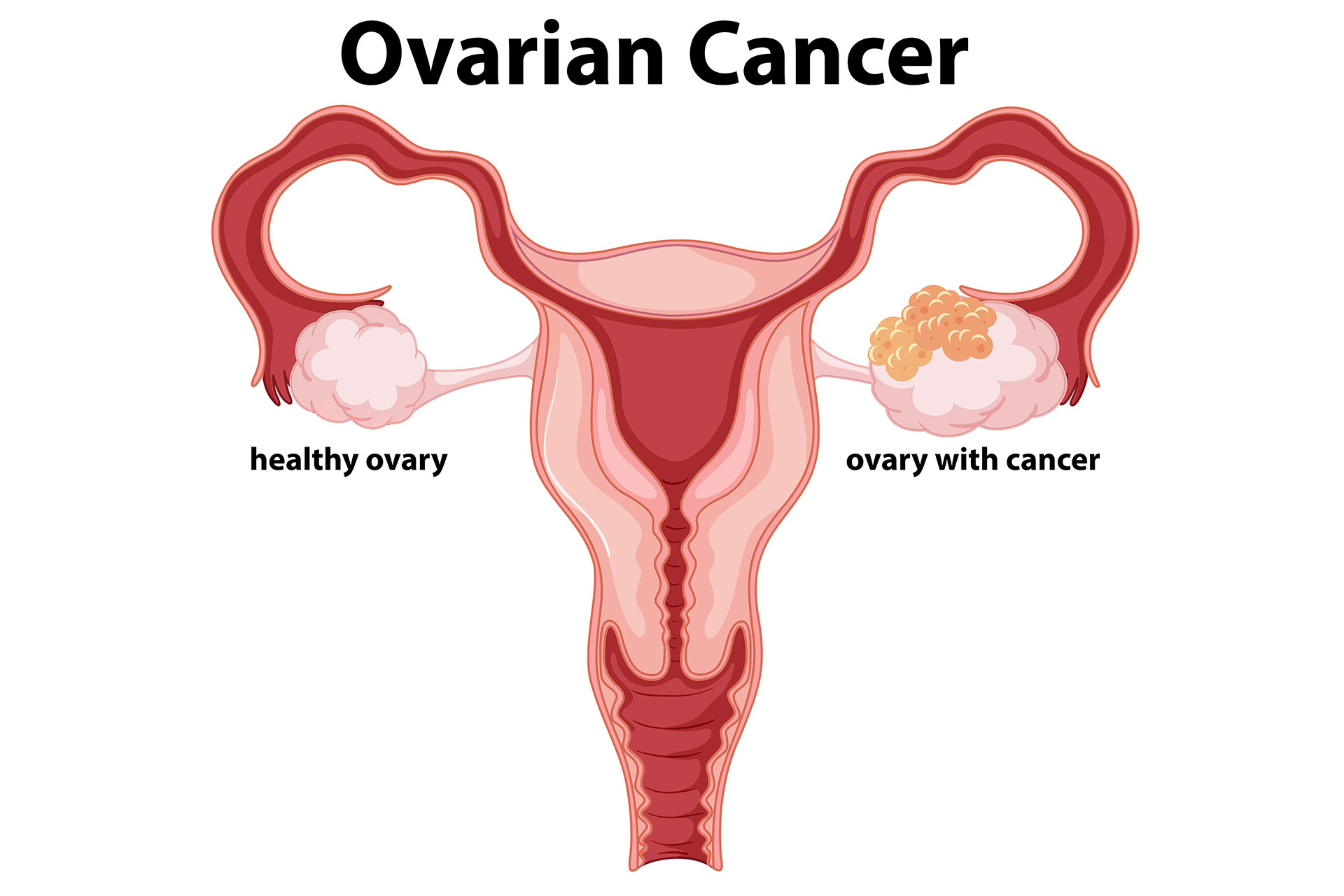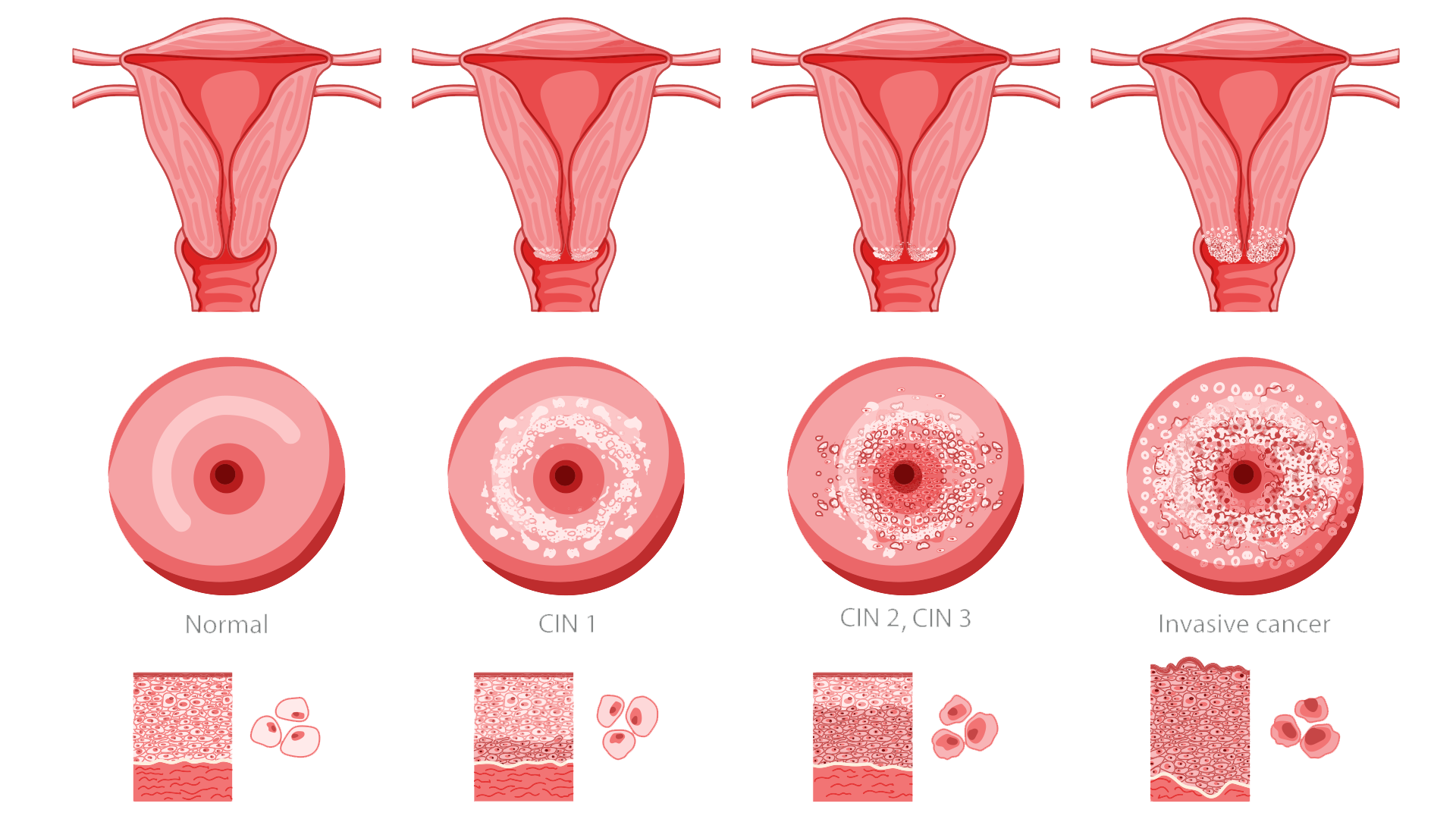January is Cervical Cancer Awareness Month. It was once a primary cause of cancer death for women in the United States. Nowadays, screening and prevention have significantly reduced the impact of cervical cancer. Nevertheless, according to the National Cancer Institute, in 2023, about 13,960 women in the U.S. received a cervical cancer diagnosis, and nearly 4,310 died from it last year.
What is cervical cancer?
It is a disease in which cancer cells arise in the cervix, which connects the uterus to the vagina, and it is among several conditions that infections with viruses, pathogens, bacteria, and parasites can cause.

What causes cervical cancer?
The leading cause of cervical cancer is an enduring infection with certain types of human papillomavirus (HPV). HPV is a prevalent virus that is sexually transmitted from one person to another. About half of sexually active people will get HPV at some moment in their lives, but few will develop cervical cancer.
HPV and cervical cancer
Human papillomavirus is the most common viral infection of the reproductive tract. Sexually active partners can be infected, and some may be repeatedly infected.
There are different types of HPV, and not all cause problems. HPV infections usually disappear without any intervention within a few months after the acquisition, and about 90% clear within two years. However, a small percentage of HPV types can persist and advance to cervical cancer.
HPV vaccines can help prevent infections that can lead to cervical cancer. The vaccine can be given to everyone aged 9 through 45, but for people aged 15 – 26, an entire three-dose series is needed if the vaccine was not received sooner (more information).
The HPV vaccine has been available since 2006. In that time, rates of cervical cancer incidence have dropped significantly among vaccinated women: about a 90% reduction compared to women who had not been vaccinated.

Screening and Prevention
A Pap test can find changes to the cervix and help doctors know if you are at high risk for cervical cancer. You can ask your doctor how often you should be screened. If you’re 21-30, you should get a Pap test every three years if no other conditions require checkups more frequently. HPV screening and tests start at 25 and are retested every five years. Testing for both HPV and Pap at the same time is also acceptable.
This 2024, the Cervical Health Awareness Month Theme is “Learn. Prevent. Screen“. The aim is to highlight the need to educate people with knowledge about reducing cervical cancer risks and the life-saving matter of regular screenings.
During this month and beyond, we can build a healthier community by improving education on HPV vaccination, screening, treatment, and management of cervical cancer. Together, we can end cervical cancer within a few generations.
Our team at Signature Health Services encourages our community to become aware of the preventive actions needed to keep lowering the severe disease rate of this type of cancer.
If you or a family member is diagnosed with cervical cancer, we can care for you in the comfort of your own home and inform you about management and medication administration.
Call Signature 24/7 at 800-277-8291 for excellence in skilled and compassionate home health care.

Your Complete Home Health Care Solution!
ALWAYS ON CALL
| Monday – Sunday | 24 / 7 |
1 (800) 277-8291 (option 1)
COUNTIES SERVED
OUR VALUES
TESTIMONIALS

I love all of my home health people.

All Signature staff as well as therapy were very helpful.

Their services have always been great.

I really love my physical therapist. Gary has helped me so much.

This has been one of the best agencies. Very caring nurses.

I’ve had a really good physical therapist and really nice nurses.

I have had excellent care & would recommended them to anyone.

Gary Dixon is the very best physical therapist in Baytown and Houston Area.

